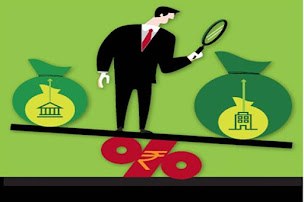Is Risk-Free Investment Possible During Financial Turmoil
According to the Financial Times, bad debt has become one of the major obstacles to investment in the current financial turmoil. During the coronavirus outbreak, for instance, Financial Times reported that the Indian economy contracted by a whopping 24% – this was originally 3.1% in the first quarter of the year 2020. The drastic reduction in the GDP of India was far more than what economic experts had forecasted. During the pandemic, lots of businesses were shut with more than 140 million job losses recorded and one wonders how risk-free investment could be possible in such a situation.
The response of the Indian government to the financial turmoil caused by the Covid-19 pandemic has been widely condemned. The failure to give some palliatives to those who lost their sources of income during the financial crisis was widely criticized. The Financial Times concluded that these were the worst times in the history of the country but the worst has happened and there are a lot of reasons for investors to be optimistic about the near future.
Is Risk-free Investment Possible During the Present Economic Woes in India?
The answer to this question is a resounding Yes! Experts suggest that when investing during an economic crisis, investors should consider a risk-adjusted return on investments. This means that the investment option must be tied to the risks involved, and it also means the higher the risks, the higher the returns should be.
There is nothing like a risk-free investment, but there are low risk, medium risk, and high-risk investments. Also, the higher the risks in most investments, the higher the returns may likely be. Risks can be described in several factors. These factors include liquidity, governance, credit, and business model. Under marketable securities, for instance, it can be easier to create a benchmark for risks and returns. On the other hand, matching risks with returns for certain investments like real estate can be quite difficult.
With this in mind, it is clear that there is no risk-free investment even when the economy is not in turmoil. Inflation will remain the benchmark and investors will have to generate revenues higher than this inflation to stay relevant.
How to Create Risk-free Investment In this Financial Turmoil?
According to financial experts, the best possible way of creating a risk-free investment in a weak economy is to consider lower-risk portfolios only. You need to also diversify your risks by spreading your investment into several options. Some of the best lower-risk investments that experts suggest right now are Fixed Income short term investments, Equities, Gold, and external investments.
Liquidity and high-quality fixed-income investments are some of the best you should consider in the present financial turmoil. One can consider liquid funds for short-term investments, debt funds for medium-term and equities for the long term. When it comes to equities, investors should focus on large-cap companies. These companies tend to be resilient against economic turmoil. Large-cap companies are selling at low prices now, and with solid business fundamentals in place, the returns on investment in the nearest future will likely rise as the country begins to recover.
Gold ETF is also termed as a very good investment option in this economic turmoil because it is a commodity that has a store of value. This commodity is known to provide a strong hedge against the falling rupee currency.
You should also consider investing outside India. Many funds offer an opportunity to invest in international stocks. By investing in such funds, one can have international exposure and hedge against the local volatility.
(By Abhinav Angirish, Founder, InvestOnline.in)




Comments
Post a Comment